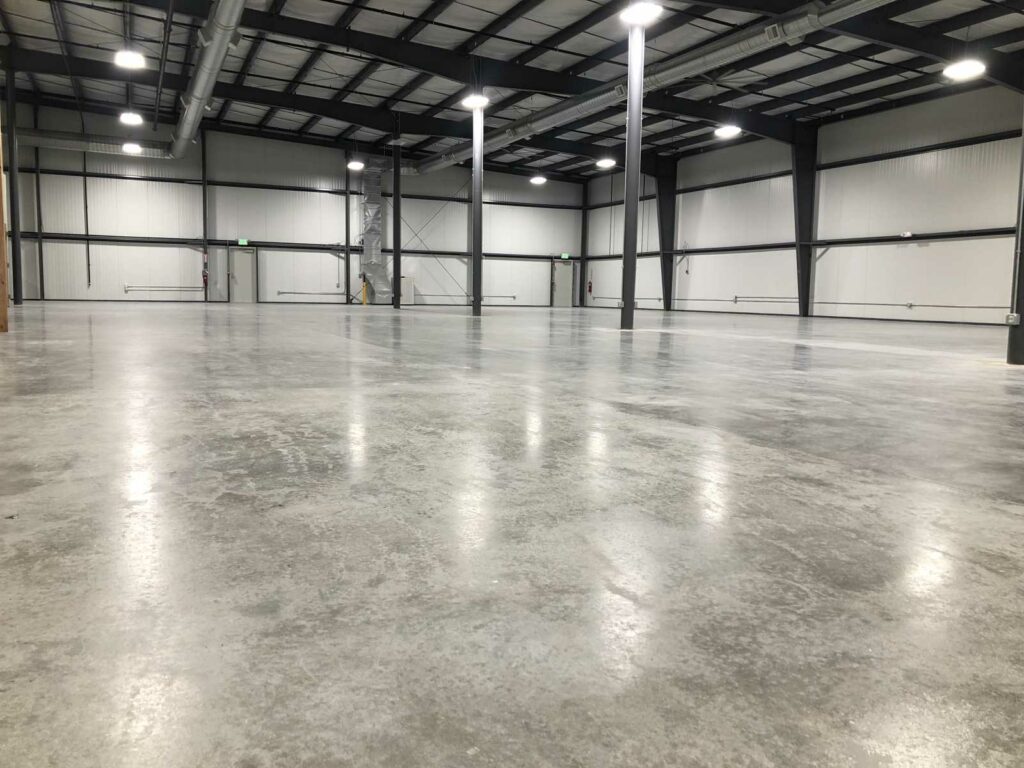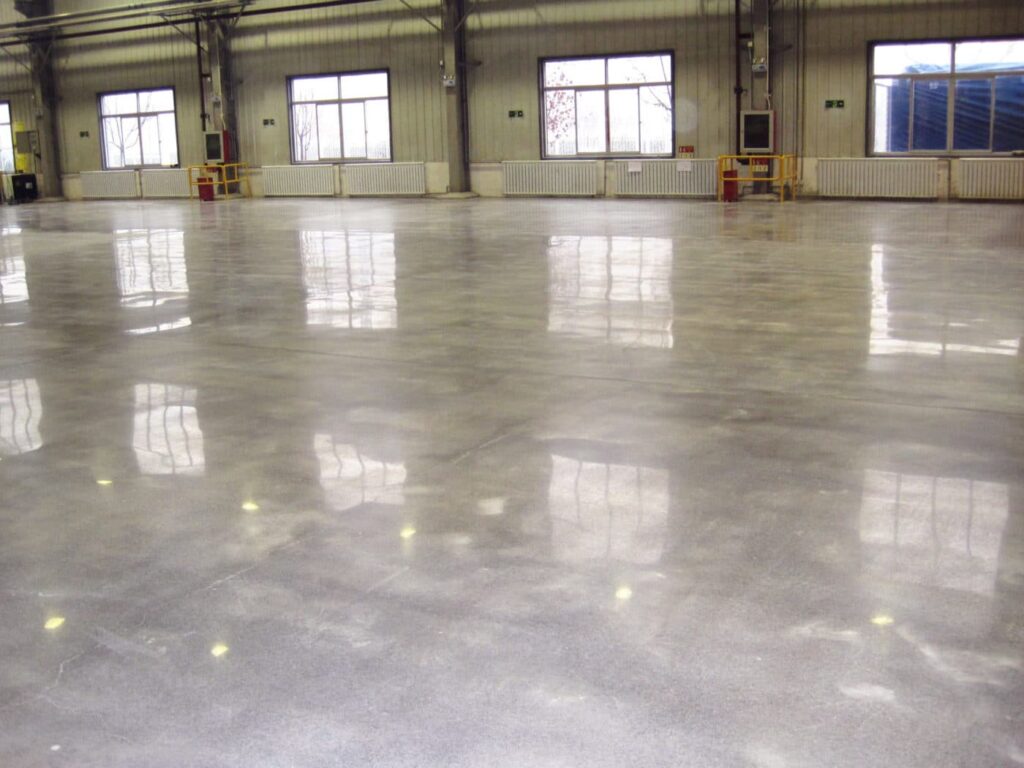Concrete Densifying Services in Houston, Texas
Searching for top-rated concrete densifying services in Houston, Texas? Concrete is a naturally porous material. By applying a concrete densifier, you are permanently filling the concrete pores, thus hardening the concrete, and making it stronger. When you examine a crosscut concrete section under a microscope, the concrete looks very similar to a sponge. The concrete has a natural pore structure due to water evaporation during the mixing and curing process. As the water evaporates during the curing process, microscopic pores are formed. These pores interfere with surface uniformity and as a result, the concrete is not a true solid mass.
Cutting Edge Flooring Services is experienced in the application of various concrete densifying products, and we have many successful applications here in the Houston, TX area. Prior to any project to harden concrete floors, we will assess your floor surface, check load-bearing traffic, and then select the proper concrete densifier to harden the concrete and fill in the concrete pores. After densifying the slab, we will finish the concrete slab surface to any finish, coating, or design option you choose.
Top-Rated Flooring Services
100% Satisfaction Guaranteed
Competitive Prices and Rates
Fast Turnaround Time
Have Questions? Contact the Flooring Experts, Today!
Concrete Densifiers Improve Resistance to Wear and Eliminate Dusting
Prevent Premature Dulling and Deterioration
Additionally, concrete in its natural state is the softest at the top layer. During finishing, bleed water rises and brings the finest aggregate particles to the surface. This increases the water-to-cement ratio at the surface, reducing the concrete strength. This means that even concrete that is tested to 3000 psi compressive strength can be much softer at the surface, which leads to abrasion, wear, and wear-induced powdering of the surface, known as concrete dusting. This soft, thin layer at the surface can be difficult to polish and unlikely to be hard enough to resist abrasion, resulting in premature dulling. These hollows in the concrete, interfere with surface uniformity and eventually lead to absorption, staining, and deterioration. Concrete densifiers (hardeners) work on the surface of the concrete to improve resistance to wear and eliminate dusting.

Photo Credit: Ghost Shield

Photo Credit: WR Meadows
Improving the Resistance of Stains
It is important to keep as much of the material on or near the surface as possible so it can have the greatest impact. It makes the surface less permeable to liquids and improves stain resistance. A densified concrete floor does not require sealants of any kind and facilitates more productive cleaning of the concrete surface. Densifiers are frequently used on industrial floors where appearance is not a concern and as an integral part of finishing concrete floors for architectural design projects.
Get Your Free Project Estimate, Today!
Different Types of Concrete Hardeners
Concrete densifiers, often called concrete hardeners, are a small investment that improves concrete slab durability, reduces concrete dusting, and strengthens the concrete surface. There are a variety of chemical hardeners to densify and seal concrete. Concrete densifiers are essentially reactive compounds in a liquid solution. Therefore, some must be scrubbed into the floor for surface penetration, while others can be spray applied and left for the concrete to cure. All of these materials have one thing in common: they are using a variant of silica, silicate, or siliconate to react with calcium hydroxide and fill concrete pores to harden and seal concrete.
Below are the general types of concrete densifiers that we use for densifying concrete:
1. Magnesium Fluorosilicate
Liquid applied densifier that allows for easy application. Does not impart strengths as great as other concrete hardeners.
2. Sodium Silicate
The most common liquid applied concrete hardener. Short service life.
3. Sodium Siliconate
Better abrasion resistance and sealing. Does not harden concrete as well as other materials, but is the most prevalent concrete densifier.
4. Lithium Silicate
One of the most current “hot” products on the market. Creates an extremely hard concrete surface. Fast dry time. Environmentally friendly.
5. Amorphous Silica
Also known as colloidal silicas. The very latest technology, rapid application, and drying time.
Ready to Book Your Appointment?
A Brief Explanation of Concrete Densifier Chemistry
Calcium Silica Hydrates (CSH) is the mineral compound that hardens concrete and gives concrete its strength. Approximately 20% of the Portland cement mixture in concrete is converted to lime (Calcium Hydroxide) during hydration. Lime is prevalent in the mixture but has no structural value in concrete. Densifying concrete with silica-based compounds allows a reaction with the lime to create CSH. When this chemical reaction occurs, we can reduce the amount of lime in the concrete (which causes concrete dusting), and convert it into CSH, which fills the pores and increases hardness, strength, and stain resistance in the slab.
Densified Concrete Design Choices
Densification broadens the choices for the final appearance and finishing techniques (such as burnishing and polishing) of the hardened concrete slab. A densified, diamond polished concrete slab can achieve a high gloss that can look like natural polished stone. When Cutting Edge Flooring Services combines techniques such as dyeing, staining, or grinding to expose aggregate, you can take concrete from dull gray to any look you can imagine. And the cost of densification and polishing is competitive with alternate floor covering choices. Densifiers are also used to harden concrete where appearance is not a concern—such as an industrial plant floor, warehouse, or maintenance areas such as auto service centers with continuous exposure to oils, solvents, and grease.
Commercial clients, visit our Industrial and Specialty Coatings page to learn more about our high-performance coatings.